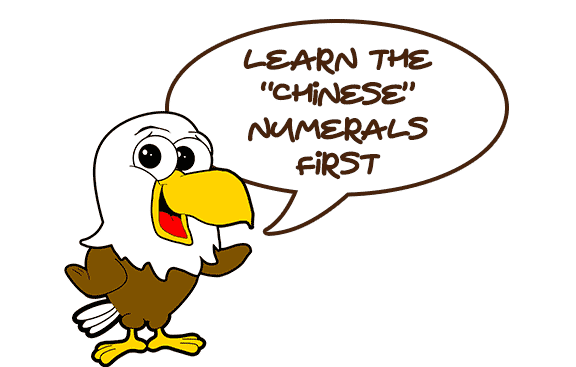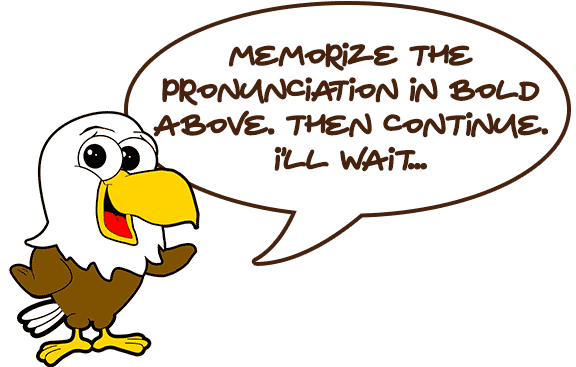Do you want to learn how to count to ten in Japanese? Counting to 10 in Japanese is too easy. How about a hundred? A million? Yeah, that's better. This page covers pretty much all the numbers you'll ever need in Japanese and with sound files.
But before moving forward, visit the "Free Downloads" section at the bottom of this page 🙂

Do you want to be a millionaire? Well, I can't help you with that—sorry—but I can help you count to a million in Japanese!
数え方
kazoe kata
How to Count
A few notes before we begin:
- There are two ways of counting Numbers 1-10. One is with "native" Japanese pronunciations, and one was imported from the Chinese many, many years ago. [Don't panic. We kind of have this also with our cardinal numbers (one, two, three...) versus our ordinal numbers (first, second, third...)]
- The main number names use Chinese pronunciation (or an approximation thereof). Use these Chinese numerals to count from one to infinity (and beyond). This is referred to as 音読み on yomi. You may be familiar with these: ichi, ni, san, etc.
- Japanese number names (mostly 1-10 although there are a few others) are referred to as 訓読み kun yomi. Here are the first three: hitotsu, futatsu, mittsu, etc.
- Japanese uses both Arabic numerals and kanji for writing numbers. It is a matter of stylistic choice.
- Zero is pronounced rei or (more likely) zero.

We'll give both pronunciations in the chart below, but as the eagle says, first learn the "Chinese" pronunciations. Those will immediately be useful.
Let's count to ten. I suggest learning by heart the ones in bold first. This is mostly the on yomi, but numbers 4 and 7 have two pronunciations you need to know now.
Number | Kanji | Chinese | Native |
|---|---|---|---|
0 | 零 | れい rei | ゼロ zero [not really kun yomi, but zero is most often used.] |
1 | 一 | いち | ひとつ |
2 | 二 | に | ふたつ |
3 | 三 | さん | みっつ |
4 | 四 | し | よん or よっつ |
5 | 五 | ご | いつつ |
6 | 六 | ろく | むっつ |
7 | 七 | しち | なな or ななつ |
8 | 八 | はち | やっつ |
9 | 九 | く or きゅう | ここのつ |
10 | 十 | じゅう | とお |
Here's one through ten all in a row. Once you have studied the above chart, listen to this sound file until you can say it smoothly with the speaker. Remember 4, 7, and 9 each have two different pronunciations. This recording uses shi, shichi, and kyuu.

Memorized them? Good! Now, take a quiz to test your skills:
How did you do? If you feel like you know those ten fairly well, please continue. If you aren't sure, add the pronunciations to your Anki deck (or use paper flashcards) and review until you know them.
Once you know the first ten numbers (at least the ones in bold), you can count to any number.
Let's move on by learning to count from 11 to 19.
In many languages, these teen numbers are troublesome. Eleven, twelve, thirteen, what?! Good news for you: Japanese is very regular. 11 to 19 is simply "ten and a number."
Number | Kanji | Pronunciation |
|---|---|---|
11 | 十一 | じゅう いち |
12 | 十二 | じゅう に |
13 | 十三 | じゅう さん |
14 | 十四 | じゅう よん [This could be juu shi, but it is usually juu yon.] |
15 | 十五 | じゅう ご |
16 | 十六 | じゅう ろく |
17 | 十七 | じゅう なな [This can also be juu shichi] |
18 | 十八 | じゅう はち |
19 | 十九 | じゅう く or じゅう きゅう |
Ready to test your teen skills? Try this quiz:
Remember how to make the 11-19 numbers. Let's learn how to count by tens, hundreds, and thousands. After that, it is just a matter of learning new words for the units.
Making tens, hundreds, and thousands is easy once you learn the words for 100, 1000, and 10,000 (see below):
- The tens from 20 to 90 are (number) and (ten). 20 is, therefore, two and ten: nijuu
- The hundreds (200-900) are similar: (number) and (hundred): 200 is two and hundred: ni hyaku
- The thousands (2000-9000) continue this pattern: (number) and (thousand): 2000 is two and thousand: ni sen
Basically, you just start with the left-most digit and work your way to the right.
First, let's count by tens. It is easy if you know 1-10.
Number | Kanji | Pronunciation |
|---|---|---|
10 | 十 | じゅう |
20 | 二十 | に じゅう |
30 | 三十 | さん じゅう |
40 | 四十 | よん じゅう [This could be shi juu, but it is usually yon juu.] |
50 | 五十 | ご じゅう |
60 | 六十 | ろく じゅう |
70 | 七十 | なな じゅう [This can also be shichi juu] |
80 | 八十 | はち じゅう |
90 | 九十 | きゅう じゅう |
Now we come to our first special number word: 100 is 百 hyaku.
Number | Kanji | Pronunciation |
|---|---|---|
100 | 百 | ひゃく |
105 (100 & 5) | 百五 | ひゃく ご |
158 (100 & 50 & 8) | 百五十八 | ひゃく ご じゅう はち |
200 (2 & 100) | 二百 | に ひゃく |
799 (7 & 100 & 90 & 9) | 七百九十九 | なな ひゃく きゅう じゅう きゅう |
Do you follow? Start from the left and move to the right.
Once you get it into you head, it really isn't that hard.
The next special number word is 1000 千 sen.
Number | Kanji | Pronunciation |
|---|---|---|
1000 | 千 | せん |
1051 (1000 & 50 & 1) | 千五十一 | せんごじゅういち |
1582 (1000 & 500 & 80 & 2) | 千五百八十二 | せん ご ひゃく はち じゅう に |
2000 (2 & 1000) | 二千 | に せん |
7999 (7 & 1000 & 900 & 90 & 9) | 七千九百九十九 | なな せん きゅう ひゃく きゅう じゅう きゅう |
Note: Some sounds change when combined with other sounds. For example, 300 isn 't san hyaku but san byaku. Do make the effort to learn these sound changes, but the good news is, there is a pattern. 3, 6, and 8 are the ones that change.
hyaku becomes:
300: 三百 さんびゃく san byaku [the "h" becomes a "b"]
600: 六百 ろっぴゃく roppyaku [the "ku" in "roku" becomes a small tsu and the "h" becomes a "p"; listen to the sound file]
800: 八百 はっぴゃく happyaku [the "chi" in "hachi" becomes a small tsu and the "h" becomes a "p"; listen to the sound file]
sen becomes: (Note: 6 doesn't change)
3000: 三千 さんぜん san zen [the "s" becomes a "z"]
6000: 六千 ろくせん roku sen [no change]
8000: 八千 はっせん hassen [the "chi" in "hachi" becomes a small tsu. Listen to the recording and mimic the sound]
And now for the last number word we will look at: 10,000 万 man.
Number | Kanji | Pronunciation |
|---|---|---|
10,000 (1 & 10,000) Even though 万 means 10,000, it almost always has a 1 before it. | 一万 | いち まん |
10,511 (1 & 10,000 & 500 & 10 & 1) | 一万五百十一 | いち まん ご ひゃく じゅう いち |
15,822 (1 & 10,000 & 5000 & 800 & 20 & 2) | 一万五千八百二十二 | いち まん ご せん はっぴゃく に じゅう に |
20,000 (2 & 10,000) | 二万 | に まん |
79,999 (7 & 10,000 & 9000 & 900 & 90 & 9) | 七万九千九百九十九 | なな まん きゅう せん きゅう ひゃく きゅう じゅう きゅう |
There are other, larger number words such as 億 oku for 100,000,000, 兆 chou for 1,000,000,000,000, and 京 kei for 10,000,000,000,000,000 but I only promised up to a million and that's probably enough for now.
Wait, you didn't give me a million yet, you say?
Apologies.
It is simply 100 and 10,000. Do you remember how to say 100? How about 10,000? Put them together:
Click here to reveal the answer
Congratulations! You can count to a million!
Well, I'm sure you will need some practice and it will take time to remember the few sound changes and special number words, but I hope this page helped get you somewhat familiar with numbers in Japanese. If you have any questions or suggestions for this page, please post it in the comments below.
Other Notes:
4 and 9 are considered unlucky. 4 can be pronounced as し shi which sounds like death 死 shi. 9 can be pronounced く ku which sounds like suffering 苦 ku.





